|
|
|
|||||



|
You would have to see it to believe it. Pictures do not do it justice. Approximately 35 acres of grass and brush burned to the ground. 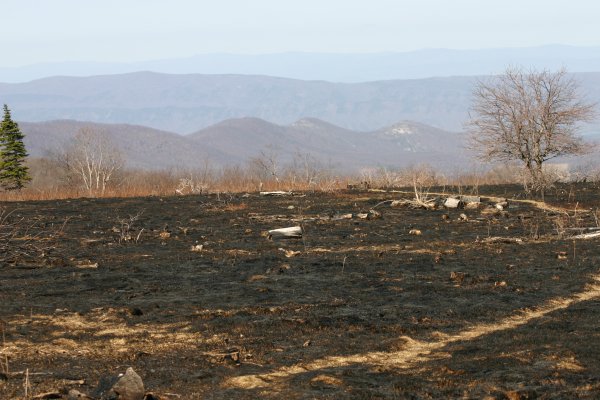 On Monday, firefighters from Shenandoah and other parks engaged in a prescribed burn of the [western] third of Big Meadows. Fire information officer Julena Campbell explained to Rob Hedelt of the Free Lance-Star in Fredericksburg, "that the Park Service uses these occasional [prescribed] burns for several purposes. 'Sometimes, it's done to reduce the accumulation of fuel left from a storm or other situation,' Campbell said. 'Other times, as in the case here [on Monday], it's being done to control vegetation and preserve cultural resources.' 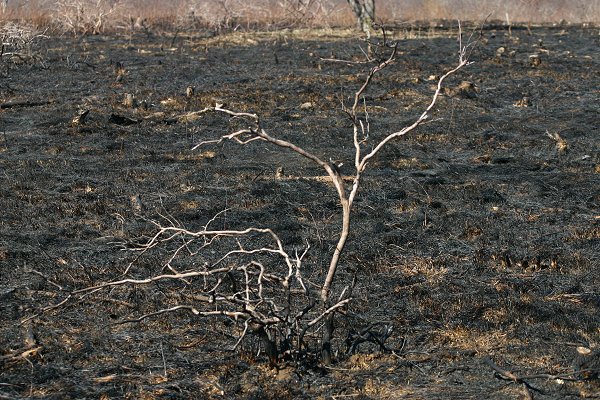 At Big Meadows, she said, [prescribed burns] are used each year to ensure the grassy expanse remains an open meadow. The flames stunt or keep down heavy brush that once grew shoulder-high in the meadow, and to keep the forest from slowly encroaching on the open space, Campbell explained. It's all done in part, she noted, because of the cultural importance of the meadow, which dates to the era when American Indians may have used an open meadow as their home. Likewise, she said, the Civilian Conservation Corps workers of the 1930s also made use of the open meadow, something the park makes note of" (Rob Hedelt, The Free Lance-Star, April 14, 2005). 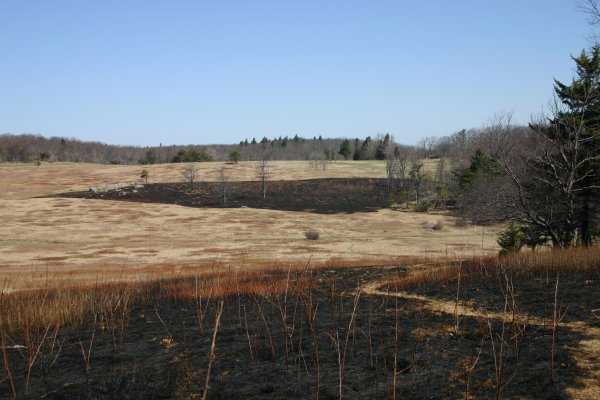 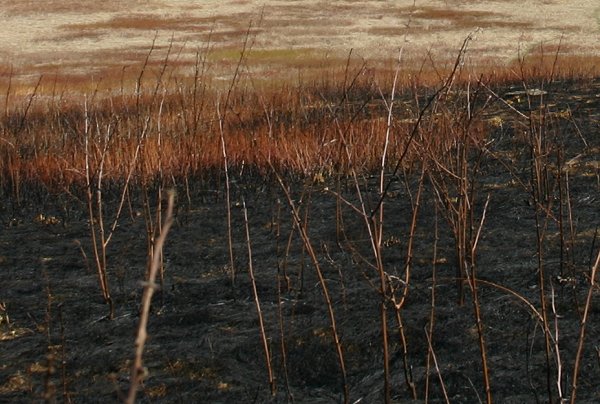 On Friday, Julena Campbell said that the burn had a relatively low immediate impact on animal life, noting that two-thirds of the meadow were unaffected. 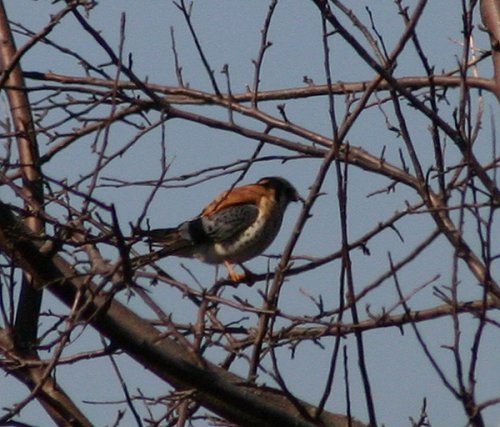 She observed that the presence of birds such as the American Kestrel [above] might be the result of easier access to prey such as mice and snakes. Ordinarily, mice are able to travel to their burrow openings in above ground runways beneath the brush and the shrubs. One consequence of the burn is that these runways are more readily visible. 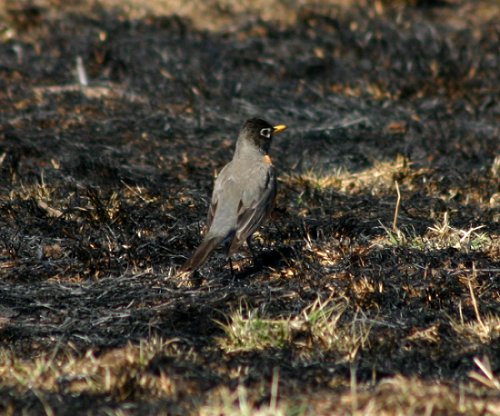 There was no shortage of birds on the meadow on Friday. 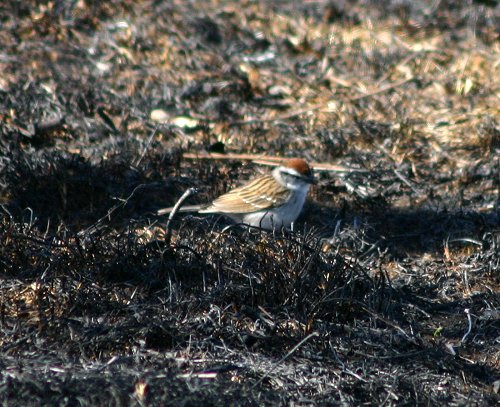 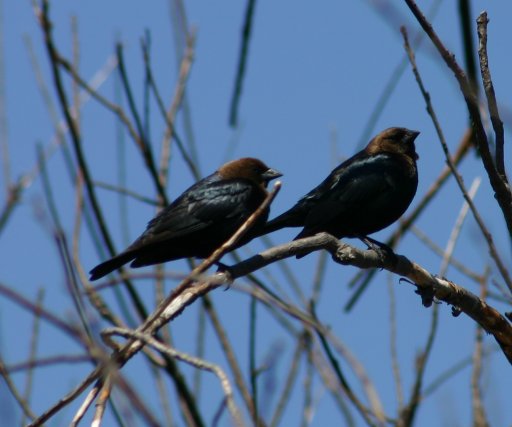 There were also a plethera of white-tailed deer. 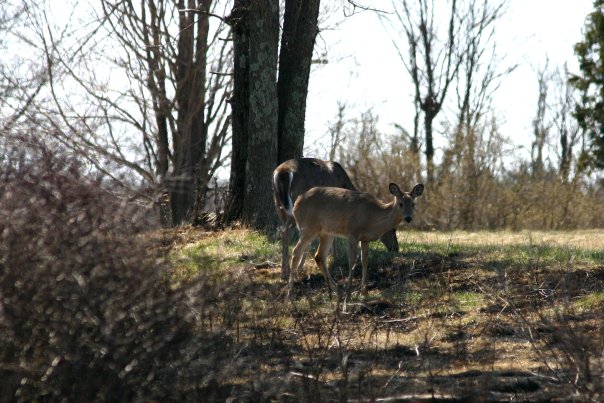 Nonetheless, it was a stark contrast to what I saw at Big Meadows in September 2003. 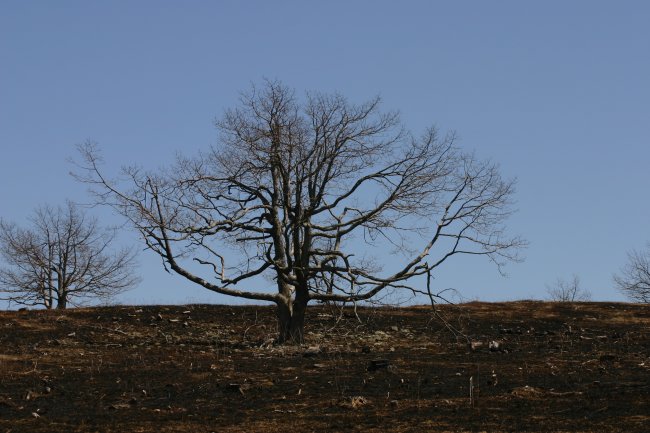 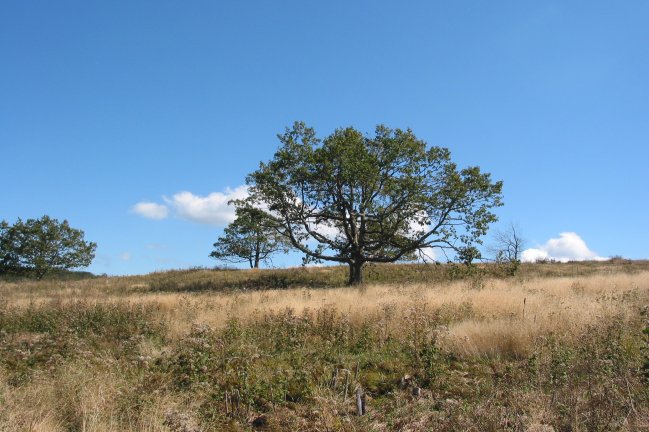 According to the park service, the "prescription [for such burns] includes weather, fuel moisture, and resource availability parameters. [Other burns] are planned for this year: one at sawmill and others for vista maintenance. Sawmill burn unit, near the town of Dooms, VA, on Purple Cow Rd. in Augusta County, was burned once before in 1999. The purpose of the burn was to improve the appearance of the area and to reduce the threat of uncontrollable wildland fire by reducing hazardous fuel conditions caused by insects and disease, storm damage, and exotic species. The park will continue this effort by burning the 55-acre unit again in March or April. [This was the last prescribed burn "specifically to reduce the amount of accumulated fuels on the forest floor" (Julena Campbell, Supervisory Park Ranger, electronic mail, April 15, 2005).] As part of an ongoing project, the park will [also] use fire to maintain open vistas by preventing encroachment by woody species at many scenic locations along Skyline Drive. The park will burn vistas near Swift Run, Hogwallow, and Fox Hollow Overlooks in March, April, or May. Additional vistas may be burned if weather conditions, fuel moisture, and resources permit" (Shenandoah Natoional Park News Release, March 21, 2005). The next prescribed burn for vista maintenance may be Friday, April 22nd or Saturday, April 23rd, assuming conditions permit. For another comparison of Big Meadows, see Big
Meadows, June 1, 2004. See also, Index
to Pictures of Blue Ridge Parkway and Skyline Drive on Loper website.
|
